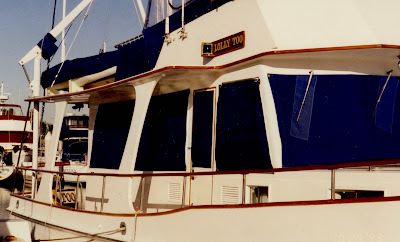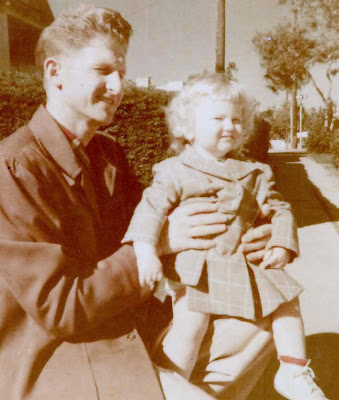
Dear Vickie,
I was saddened to hear of Donald’s passing. Strangely saddened as if a quiet weight had quietly descended to remind me once again of its presence. The same sad weight of emptiness I’ve felt on other occasions. I recalled your fathers face, his words, his actions, the strength and the frailty that older men display when looking back on their lives. If a human life is divided into thirds with a beginning, a middle and an end. Then it’s safe to say that I knew him at the beginning of the third third in which we shared some time, some work, some lunches and on occasion, salt air on his big boat.
At that point he seemed to be looking back on things rather than ahead and though never specifically worded as such to me, he seemed regretful for some of the choices he’d made and some of the opportunities lost. Looking back on my impression of him it’s hard to separate my impression of him from my own projections because I feel I’m entering the same waters, the same horse latitudes that all of us must navigate at some point.
I don’t really know what he’d been like in his younger wilder years or what living with him was like in his middle years in which he tried to settle down, raise a family and put the demons behind him. I know some of the stories, stories told by you, by him and by your mother. And I’ve looked at the blog and the photos of him as a sweet fresh faced kid. (I see a little bit of you in his face too.) I know enough to know that it wasn’t smooth sailing with him… But despite that, despite some of his questionable value placed on money and status and pull yourself up by your boot strap mentality, he had a genuine quality that’s hard to define. If I had to select a single word it would be honesty. He had a certain honesty about him and he lacked pretensions. He was who he was, with all his strengths and his failings and I liked that and I liked him.
There have been precious few men I’ve liked as much. And fewer still have ever trusted me at the wheel of their ship. I still recall the feel of the wheel in my hands, the swells beneath the keel and the way he showed me to look back at its wake in the sun dappled sea to determine if the ship's course was true. Looking back at the wake of churned water stirred by hidden diesel engines and sharp propellers I saw what he meant. The wake I left far behind me wandered back and forth in a series long left-right corrections. I was over-controlling, over-steering. When he saw I understood, he nodded and explained that to steer a true course you need to compensate for mass. That mass moves the ship to port or starboard well after a course correction has been achieved. That day I learned that a true course is the gentle art of releasing control early. I haven’t forgotten it.
All the best to you.
Peter [Kuus-Klaassen]















































